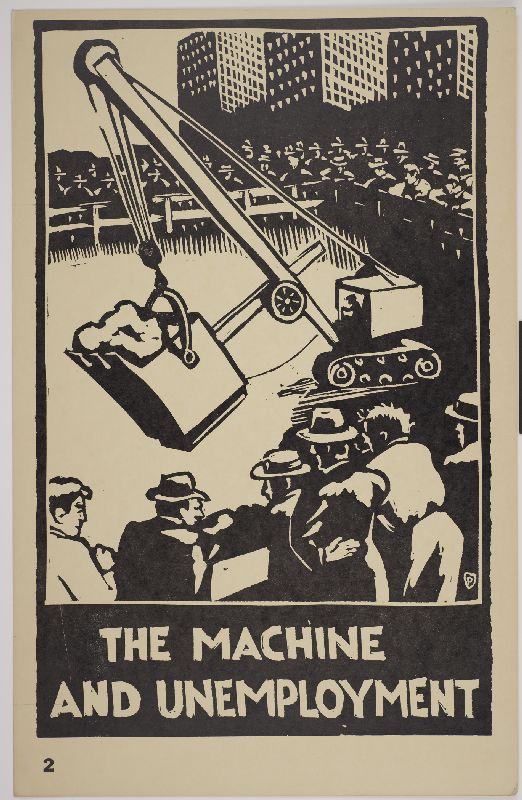
“…it is capitalistic accumulation itself that constantly produces, and produces in the direct ratio of its own energy and extent, a relativity redundant population of labourers, i.e., a population of greater extent than suffices for the average needs of the self-expansion of capital, and therefore a surplus population… It is the absolute interest of every capitalist to press a given quantity of labour out of a smaller, rather than a greater number of labourers, if the cost is about the same. In the latter case, the outlay of constant capital increases in proportion to the mass of labour set in action; in the former that increase is much smaller. The more extended the scale of production, the stronger this motive. Its force increases with the accumulation of capital.” (Marx, Capital Vol. 1)
Wikipedia: Reserve army of labour
“…to the degree that large industry develops, the creation of real wealth comes to depend less on labour time and on the amount of labour employed than on the power of the agencies set in motion during labour time…” (Marx, Grundrisse, 705)
“Marx contrasts value, a form of wealth bound to human labor time expenditure, to the gigantic wealth-producing potential of modern science and technology. Value becomes anachronistic in terms of the system of production to which it gives rise; the realization of that potential would entail the abolition of value.” (Moishe Postone, Time, Labor, and Social Domination: A Reinterpretation of Marx’s Critical Theory, 1993, 26)